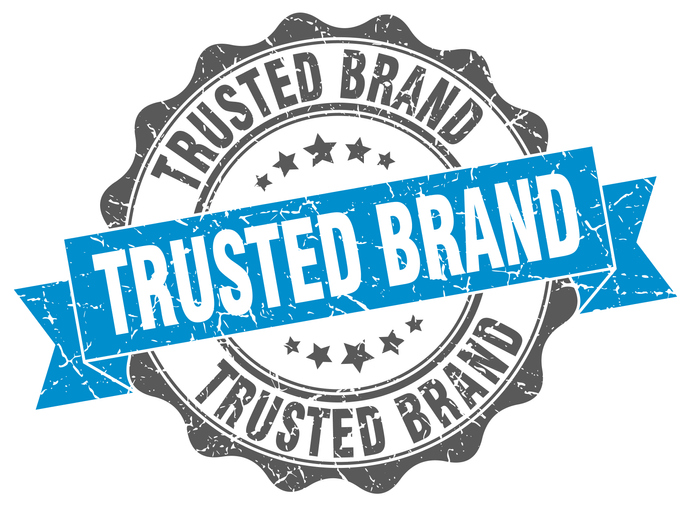Brand positioning is a critical aspect of marketing and business strategy that often makes the difference between a company's success and its failure. Thanks to the internet and social media, consumers have become accustomed to having endless amounts of information at their fingertips. Brand positioning is not just important for big brands like Nike or Coca-Cola. Regardless of business size or industry, companies need to ensure they are giving consumers a reason to believe in their brand. What makes YOU different from the competition? This month, we are taking a deeper look into the significance of brand positioning and why it is considered a strategic imperative for any business.
1. Differentiation and Recognition  One of the primary reasons brand positioningis crucial is its role in differentiation and recognition. In a crowded marketplace with countless products and services vying for consumers' attention, a well-defined brand position helps a business stand out. It is a beacon that signals to consumers what the brand represents, its values, and its unique selling proposition. When done effectively, brand positioning helps create a mental space in the consumer's mind, making the brand memorable and distinct.
One of the primary reasons brand positioningis crucial is its role in differentiation and recognition. In a crowded marketplace with countless products and services vying for consumers' attention, a well-defined brand position helps a business stand out. It is a beacon that signals to consumers what the brand represents, its values, and its unique selling proposition. When done effectively, brand positioning helps create a mental space in the consumer's mind, making the brand memorable and distinct.
Consider a successful brand like Apple, which has positioned itself as an innovator and design leader. The moment you think of Apple, you associate it with sleek, cutting-edge technology. This clear positioning has made Apple instantly recognizable and has played a pivotal role in its success.
2. Targeted Marketing
Brand positioning is closely linked to understanding and appealing to a specific target audience. By
clearly defining your brand's position, you can tailor your marketing efforts to resonate with the desires and needs of your ideal customers. This targeted approach not only enhances the effectiveness of your marketing campaigns but also leads to higher customer engagement and loyalty.
For instance, the luxury brand Rolex has positioned itself as a symbol of precision, elegance, and exclusivity. As a result, they focus their marketing efforts on individuals who value these attributes, and their strategies are carefully crafted to speak to this specific audience.
3. Competitive Advantage
Effective brand positioning is a source of sustainable competitive advantage. When your brand holds a unique and valued position in the market, it becomes challenging for competitors to replicate or overshadow your brand's identity. This advantage is not solely about offering better products or services; it's also about the perception of your brand in the minds of consumers.
 A classic example is the soft drink industry, where Coca-Cola and Pepsi have both successfully positioned themselves as distinct choices for consumers. This positioning has resulted in a "cola war," with both brands fiercely competing for market share. The competitive rivalry has been advantageous for both companies, as it keeps them top-of-mind and drives innovation.
A classic example is the soft drink industry, where Coca-Cola and Pepsi have both successfully positioned themselves as distinct choices for consumers. This positioning has resulted in a "cola war," with both brands fiercely competing for market share. The competitive rivalry has been advantageous for both companies, as it keeps them top-of-mind and drives innovation.
4. Trust and Credibility
 Brand positioning plays a pivotal role in building trust and credibility with consumers. A well-defined brand position helps communicate the brand's values and promises, creating a sense of reliability and consistency. When customers know what to expect from a brand, they are more likely to trust it and become loyal advocates.
Brand positioning plays a pivotal role in building trust and credibility with consumers. A well-defined brand position helps communicate the brand's values and promises, creating a sense of reliability and consistency. When customers know what to expect from a brand, they are more likely to trust it and become loyal advocates.
Brands like Nike, with their "Just Do It" positioning, have successfully conveyed a message of motivation and empowerment. This consistent positioning has cultivated trust among consumers, as they believe in the brand's commitment to helping them achieve their goals.
5. Pricing Power
 Brand positioning also impacts a company's ability to set premium prices for its products or services. When consumers perceive a brand as offering unique value or quality, they are often willing to pay a premium for it. This pricing power can significantly impact a company's profitability and long-term sustainability.
Brand positioning also impacts a company's ability to set premium prices for its products or services. When consumers perceive a brand as offering unique value or quality, they are often willing to pay a premium for it. This pricing power can significantly impact a company's profitability and long-term sustainability.
Brands like Mercedes-Benz and BMW, known for their luxury and performance positioning, can command higher prices than their competitors in the automobile industry. Customers are willing to pay more because they associate these brands with superior quality and prestige.
6. Consistency and Adaptability
Brand positioning provides a foundation for consistency in all aspects of a business, from marketing to product development to customer service. This consistency builds trust and credibility, as consumers know what to expect from the brand. However, effective brand positioning is not static; it should allow for adaptability to changing market conditions and consumer preferences.
 As the market evolves, a brand must be flexible in adapting its positioning to remain relevant. For example, think about the evolution of Microsoft’s Windows platform. Microsoft Windows has become one of the most powerful operating systems in the world, but it has evolved over time, incorporating new technologies and adding new features in order to keep up with the changing customer needs. Even while evolving, however, Microsoft has maintained consistency in the look and feel of its operating system, making it easier for users to adapt to new versions. This has allowed them to remain the dominant player in this space.
As the market evolves, a brand must be flexible in adapting its positioning to remain relevant. For example, think about the evolution of Microsoft’s Windows platform. Microsoft Windows has become one of the most powerful operating systems in the world, but it has evolved over time, incorporating new technologies and adding new features in order to keep up with the changing customer needs. Even while evolving, however, Microsoft has maintained consistency in the look and feel of its operating system, making it easier for users to adapt to new versions. This has allowed them to remain the dominant player in this space.
7. Emotional Connection
Emotional connections with consumers are often formed through effective brand positioning. When a brand aligns with consumers' values, beliefs, or aspirations, it can create a strong emotional bond. This bond goes beyond rational decision-making and can lead to deep customer loyalty and advocacy.
 Companies like Patagonia have positioned themselves as environmentally responsible and ethical, appealing to consumers who prioritize sustainability and outdoor adventures. This emotional connection has led to a passionate customer base that not only buys their products but also actively supports their sustainability initiatives.
Companies like Patagonia have positioned themselves as environmentally responsible and ethical, appealing to consumers who prioritize sustainability and outdoor adventures. This emotional connection has led to a passionate customer base that not only buys their products but also actively supports their sustainability initiatives.
Ultimately, it boils down to some key strategic questions for your business. Who are your target customers? What unique value do you provide to your customers? What is the reason to believe in your brand or business? What should customers think of when they hear your business name? These are the types of questions that you should be able to answer for your business quickly and effectively. A well-defined brand position should be a core strategic element of any business. If your business is missing this important component in its strategy, Mayfield Consulting can help. We have the right experience and expertise to help you define and create a brand position that will enable success now and in the future. We would love to start a conversation with you!



